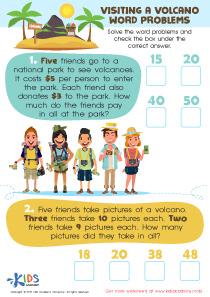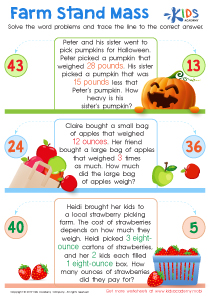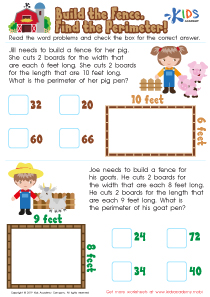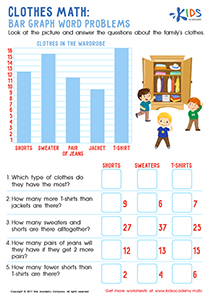Reading comprehension Normal Addition and Subtraction Word Problems Worksheets for Ages 3-9
6 filtered results
-
From - To
Boost your child's reading comprehension and math skills with our engaging Normal Addition and Subtraction Word Problems Worksheets, designed specifically for ages 3 to 9. These worksheets seamlessly combine fun and learning, presenting age-appropriate word problems that challenge children to understand and interpret written scenarios while solving basic addition and subtraction tasks. Our expertly crafted materials foster critical thinking and enhance literacy alongside numeracy, ensuring a well-rounded educational experience. Perfect for home or classroom use, these worksheets provide an excellent opportunity for young learners to practice essential skills in a playful and interactive way. Unlock your child’s potential today!


Enrichment -2 Step Word Problems Worksheet
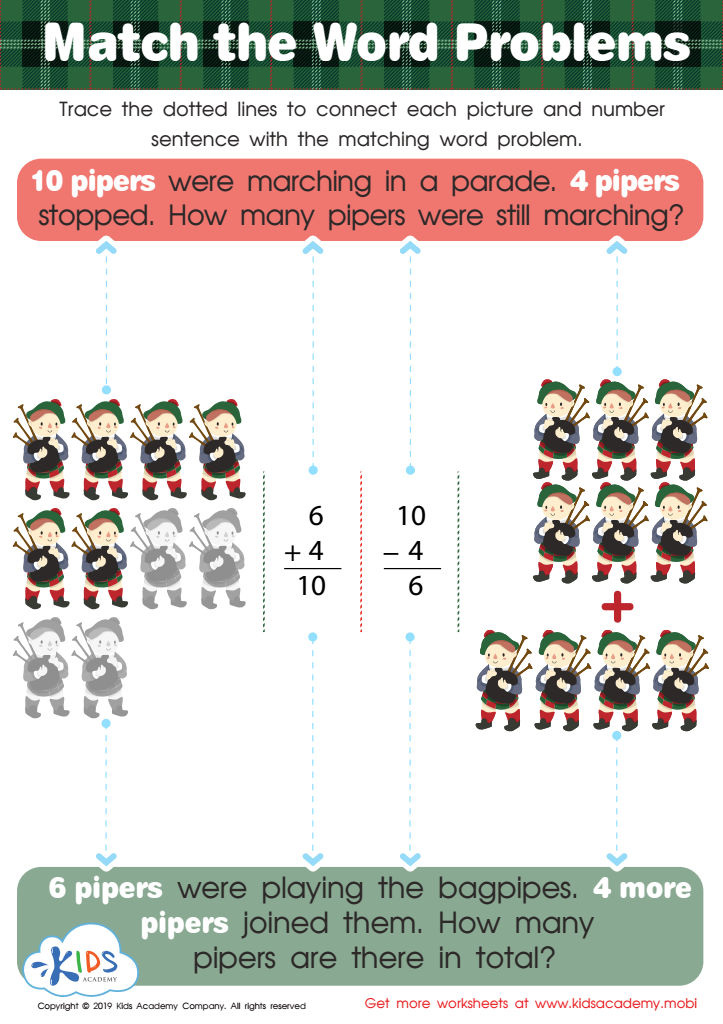

Match the Word Problems Worksheet
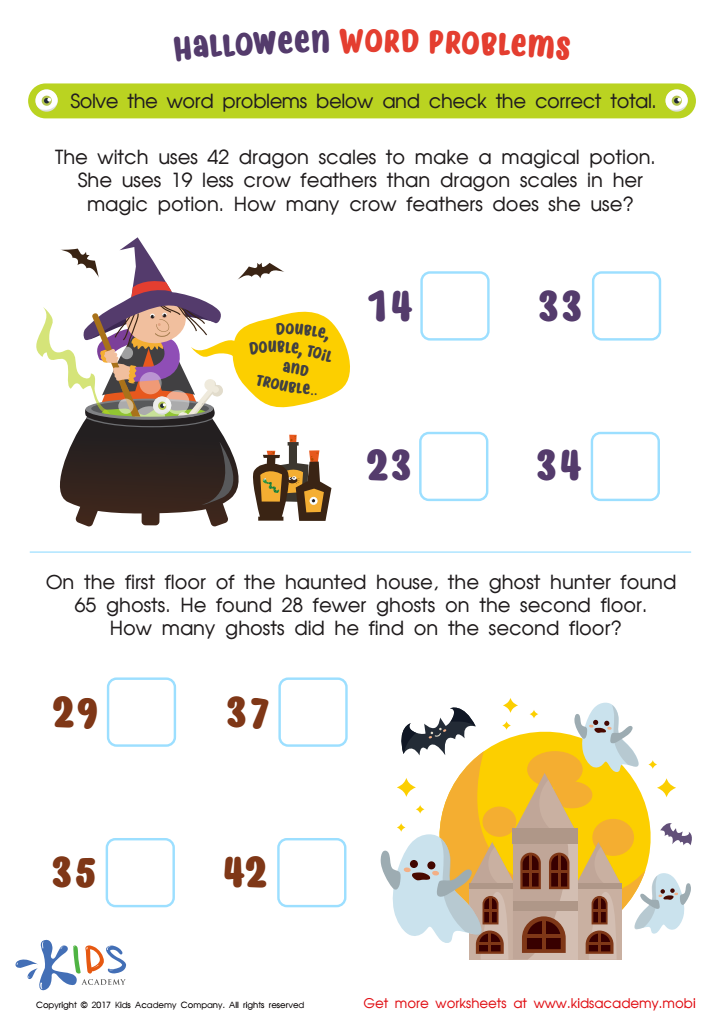

Halloween Word Problems Printable
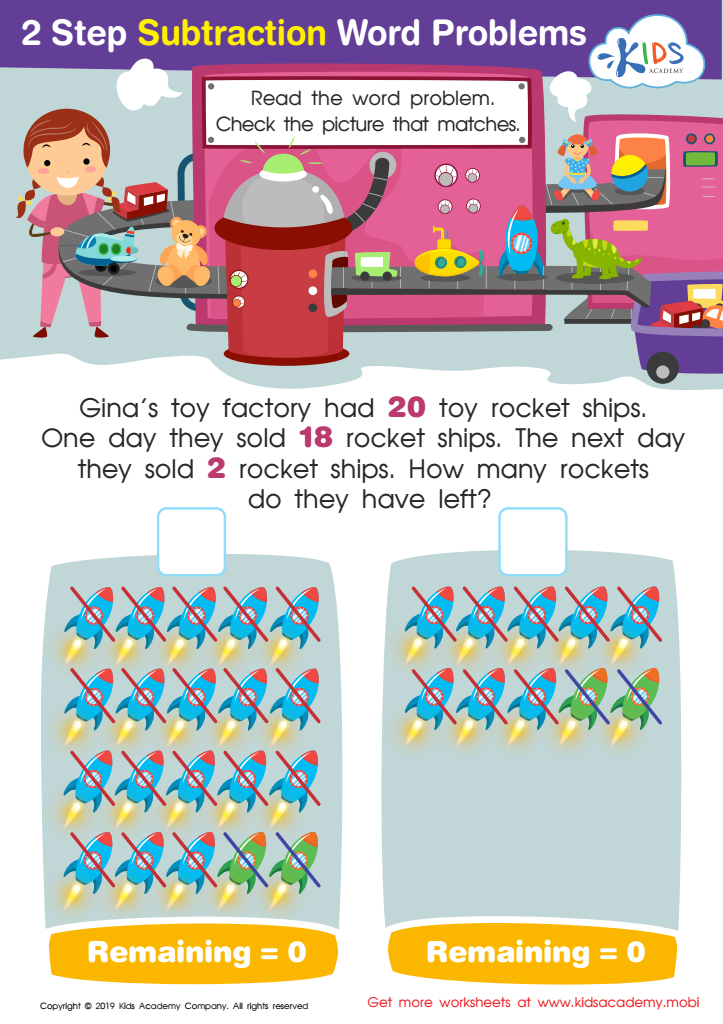

Step Subtraction Word Problems Worksheet


Word Problems: Assessment 2 Worksheet


Addition and Subtraction: Word Problems Worksheet
Reading comprehension and math skills are foundational for young learners, particularly in the context of normal addition and subtraction word problems for ages 3-9. Developing reading comprehension is crucial, as it enhances a child’s ability to understand instructions, engage with narratives, and make sense of texts. For math specifically, word problems require children to decode language and extract mathematical meaning from everyday scenarios.
By focusing on reading comprehension in the context of math word problems, parents and teachers can help children build critical thinking skills, boost problem-solving abilities, and improve their confidence in both subjects. As children learn to interpret words mathematically, they also develop their vocabulary and contextual understanding, bridging the gap between language arts and mathematics. Engaging with these problems can foster a positive attitude towards math, which is vital for future academic success.
Additionally, tackling word problems helps students learn to turn complex ideas into manageable steps, preparing them for more advanced concepts. This early foundation paves the way for lifelong learning, as proficient readers and thinkers are more likely to thrive in various academic and real-world situations. Ultimately, nurturing these skills allows children to form connections across subjects and promotes a holistic approach to education.
 Assign to My Students
Assign to My Students








